"If we don't succeed, we run the risk of failure."
- Attributed to Vice-President Dan Quayle
Another design post. I haven't done one of these in a while. The concept for this one occurred to me recently when two very different ideas that were both floating around in my head kind of congealed together.
My original idea was going to be a rant, posted somewhere else. My rant is concerning a particular game I play through Discord. (I don't feel the need to name it, but anyone familiar with it will recognize the description.) It is a text-based game where you play as a fantasy character, defeating monsters and collecting loot, so you can craft better weapons and defeat stronger monsters and get better loot, and so on. The game itself is fun for as simple as it is. It's closer to an 'idle' game than an old-style text-based adventure, but that's fine. The challenges in this game are few; there is an occasional 'dungeon' which serves as a gate, meaning that you have to get through the boss monster within to access the next area of stronger monsters. The first few dungeons are relatively straightforward (press button, deal damage), with later dungeons incorporating more puzzle-y elements. But it's still fun, as you get to make progress by improving your character as you go.
My gripe with the game is the randomness in the loot. At certain dungeons, there is a gear requirement. As in, you must have a specific item equipped. The only way to get this item is to craft it, and the only way to craft it involves gathering a large amount of monster parts. (Unicorn horns and dragon scales and that sort of stuff.) The problem is, these monster parts only drop from the corresponding monsters, and the drop rate is very low. Like, we're talking low single digits here. This leads to frustration as there can very easily be a lack of progress as the random number generator decides it doesn't want to play nice. Kill monster, no drop; kill monster, no drop; kill monster, no drop. Yes, you get xp and other stuff when you kill monsters, but none of that brings you any closer to the goal. There's always the same chance for that monster drop, and nothing you can do improves that. At least for me, this can quickly become not-fun.
With that train of thought bounding around in my head, I happened to read a random post someone made on Facebook, talking about how a particular game designer is always interested in the 'feel' of a game. He would ask stuff like "How do you want your players to feel while they are playing your game?". I've noticed this mentioned quite a lot over the years, and it's a good thing to focus on. (I do think about it for my games sometimes but it's not usually as front-and-center as it probably should be while I'm designing.)
Put those two together, and it made me think about the feel of this Discord game. Frustration can't be the intended result of this game, right? So, then, what should it be? My thought process let me to the question: How do I, personally, want to feel when I'm playing this game. Or any game? Why do I play games at all?
My answer, just talking about myself, is 'success'. I want to feel like I succeeded at something. I want a sense of accomplishment. Completing a victory point goal. Getting to play a difficult but powerful card. Executing a complex strategy. Obtaining a rare resource. Solving a difficult puzzle. I want something I can look back on as the highlight of the game. "That game was fun because I got to do That Really Cool Thing for the first time."
(Note, that 'defeating other players' and 'winning the game' are not on that list. Achieving victory over others is not a requirement for me to have fun. I supposed this places me squarely in the 'euro' gamer category; I don't need to feel superior over the other players, only over the game itself.)
Okay, so what is the opposite of success? Failure. I'm having less fun if I fail to accomplish the thing. Tied into that, though, is the reason for failing. Why did I not succeed? How I feel is based on that.
Note that one way to help mitigate this scenario is to make a reward for failure. What if, the first time I roll, I need a 6. If I fail, then the second time, I need a 5 or 6. Third time, 4 or better. And so on. It still hurts, but at least there's a sense of progress towards a goal. Eventually, I will succeed. Or maybe each time I fail, I still gain a ruby, which I can turn in for bonuses elsewhere. There is also the possibility that I could take extra precautions. Like, if I take an extra couple of turns to go the long way and grab the Platinum Key of Unlocking Everything, then I don't have to make the final roll; just walk up and take the prize. Give me the choice to do the expensive but reliable route, or try my luck at the fast way. (I don't trust my luck, so I will almost always take the reliable route, but just having the choice is nice.)
One good example of mitigating the sting of failure was the time I got to try Rising Sun. In that game, while combat is a large part of it, there is also the element of betting on the outcome of the battle. And there are times when you might want to bet on a particular side losing. Like, if I know I'm going to lose a fight, at least I will be sure to get an extra bonus out of it. This can even be a strategy, playing to lose a combat so you can get a bonus that will let you win elsewhere.
But games that are pure chance? Press button, fail; press button; fail. This is not fun for me. Yes, games should have some randomness; it provides variability and replayability to the game. But I don't enjoy when the main game experience is based entirely on luck. If I play a game like this too many times and get hit with bad luck too often, I'm very likely to reject ever playing that game again. Even if I don't always succeed outright, there should always be some sense of moving forward. Otherwise, I'm just wasting my time, both figuratively (in the sense of the game's turns), and literally.
Heh, okay. I guess this turned into more of a rant than I wanted. But the point is there; if you're making a game, ask yourself: what do I want my players to get out of this game? Then keep the answer to that in mind when you're putting together your game's systems; there might be something in there that goes against the experience you're trying to craft.
Thanks for reading, everyone!
My original idea was going to be a rant, posted somewhere else. My rant is concerning a particular game I play through Discord. (I don't feel the need to name it, but anyone familiar with it will recognize the description.) It is a text-based game where you play as a fantasy character, defeating monsters and collecting loot, so you can craft better weapons and defeat stronger monsters and get better loot, and so on. The game itself is fun for as simple as it is. It's closer to an 'idle' game than an old-style text-based adventure, but that's fine. The challenges in this game are few; there is an occasional 'dungeon' which serves as a gate, meaning that you have to get through the boss monster within to access the next area of stronger monsters. The first few dungeons are relatively straightforward (press button, deal damage), with later dungeons incorporating more puzzle-y elements. But it's still fun, as you get to make progress by improving your character as you go.
My gripe with the game is the randomness in the loot. At certain dungeons, there is a gear requirement. As in, you must have a specific item equipped. The only way to get this item is to craft it, and the only way to craft it involves gathering a large amount of monster parts. (Unicorn horns and dragon scales and that sort of stuff.) The problem is, these monster parts only drop from the corresponding monsters, and the drop rate is very low. Like, we're talking low single digits here. This leads to frustration as there can very easily be a lack of progress as the random number generator decides it doesn't want to play nice. Kill monster, no drop; kill monster, no drop; kill monster, no drop. Yes, you get xp and other stuff when you kill monsters, but none of that brings you any closer to the goal. There's always the same chance for that monster drop, and nothing you can do improves that. At least for me, this can quickly become not-fun.
With that train of thought bounding around in my head, I happened to read a random post someone made on Facebook, talking about how a particular game designer is always interested in the 'feel' of a game. He would ask stuff like "How do you want your players to feel while they are playing your game?". I've noticed this mentioned quite a lot over the years, and it's a good thing to focus on. (I do think about it for my games sometimes but it's not usually as front-and-center as it probably should be while I'm designing.)
Put those two together, and it made me think about the feel of this Discord game. Frustration can't be the intended result of this game, right? So, then, what should it be? My thought process let me to the question: How do I, personally, want to feel when I'm playing this game. Or any game? Why do I play games at all?
My answer, just talking about myself, is 'success'. I want to feel like I succeeded at something. I want a sense of accomplishment. Completing a victory point goal. Getting to play a difficult but powerful card. Executing a complex strategy. Obtaining a rare resource. Solving a difficult puzzle. I want something I can look back on as the highlight of the game. "That game was fun because I got to do That Really Cool Thing for the first time."
(Note, that 'defeating other players' and 'winning the game' are not on that list. Achieving victory over others is not a requirement for me to have fun. I supposed this places me squarely in the 'euro' gamer category; I don't need to feel superior over the other players, only over the game itself.)
Okay, so what is the opposite of success? Failure. I'm having less fun if I fail to accomplish the thing. Tied into that, though, is the reason for failing. Why did I not succeed? How I feel is based on that.
- Did I fail because my strategy is flawed? I didn't get the Golden Chalice of Infinite Rubies because I forgot to buy a magic key to open the chest? Meh, okay, totally my fault; I just need to learn from my mistake and do better next time.
- Did I fail because some other player executed a better plan and got there first? Ouch, okay that stings a little, but that's just an incentive for me to improve my strategy.
- Did I fail because another player with a Really Big Hammer hit me on the head and knock me out of the race for a couple of turns? Okay, that sucks; that was an attack targeted directly at me. I'm more likely to want to get back at that player for a while, which pulls me away from the accomplishing fun stuff part of the game. Also means I have to devote attention to not getting clobbered again, which is another distraction from having fun.
- Did I fail because I rolled a 1 on some die somewhere? Or I drew a card that says that I failed? This is the worst possible feeling, for me. In the other circumstances, there is always something I can do differently to increase my chances of succeeding. In this scenario, I have zero agency. I can only keep trying (if the game even allows that) until I succeed. And in that interim, someone else could come along with a better die roll and steal the goal. This scenario, failing due to random chance, causes frustration for me. And even if I do eventually succeed, how many turns did I spend sitting there and making failed rolls before I finally succeeded? Other people might feel a high from that moment, finally rolling that 6 and getting the reward; me, it's almost a sense of relief, like 'whew the bad part of the game is over'. Why does the game need a bad part in the first place?
Note that one way to help mitigate this scenario is to make a reward for failure. What if, the first time I roll, I need a 6. If I fail, then the second time, I need a 5 or 6. Third time, 4 or better. And so on. It still hurts, but at least there's a sense of progress towards a goal. Eventually, I will succeed. Or maybe each time I fail, I still gain a ruby, which I can turn in for bonuses elsewhere. There is also the possibility that I could take extra precautions. Like, if I take an extra couple of turns to go the long way and grab the Platinum Key of Unlocking Everything, then I don't have to make the final roll; just walk up and take the prize. Give me the choice to do the expensive but reliable route, or try my luck at the fast way. (I don't trust my luck, so I will almost always take the reliable route, but just having the choice is nice.)
One good example of mitigating the sting of failure was the time I got to try Rising Sun. In that game, while combat is a large part of it, there is also the element of betting on the outcome of the battle. And there are times when you might want to bet on a particular side losing. Like, if I know I'm going to lose a fight, at least I will be sure to get an extra bonus out of it. This can even be a strategy, playing to lose a combat so you can get a bonus that will let you win elsewhere.
But games that are pure chance? Press button, fail; press button; fail. This is not fun for me. Yes, games should have some randomness; it provides variability and replayability to the game. But I don't enjoy when the main game experience is based entirely on luck. If I play a game like this too many times and get hit with bad luck too often, I'm very likely to reject ever playing that game again. Even if I don't always succeed outright, there should always be some sense of moving forward. Otherwise, I'm just wasting my time, both figuratively (in the sense of the game's turns), and literally.
Heh, okay. I guess this turned into more of a rant than I wanted. But the point is there; if you're making a game, ask yourself: what do I want my players to get out of this game? Then keep the answer to that in mind when you're putting together your game's systems; there might be something in there that goes against the experience you're trying to craft.
Thanks for reading, everyone!
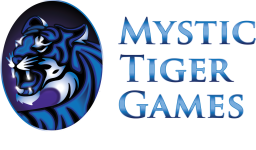

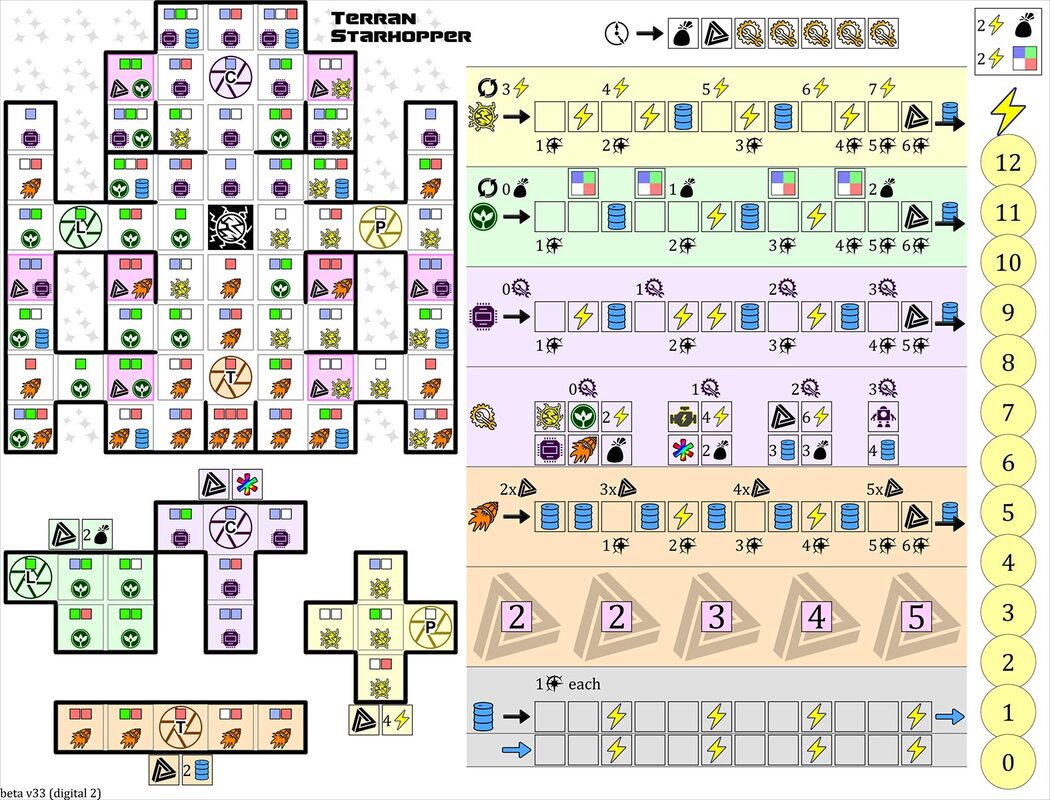

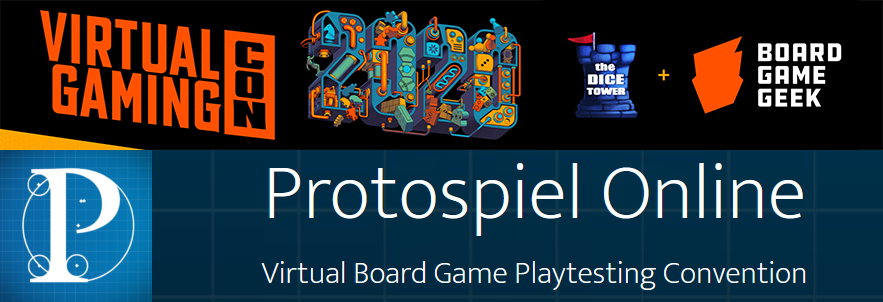
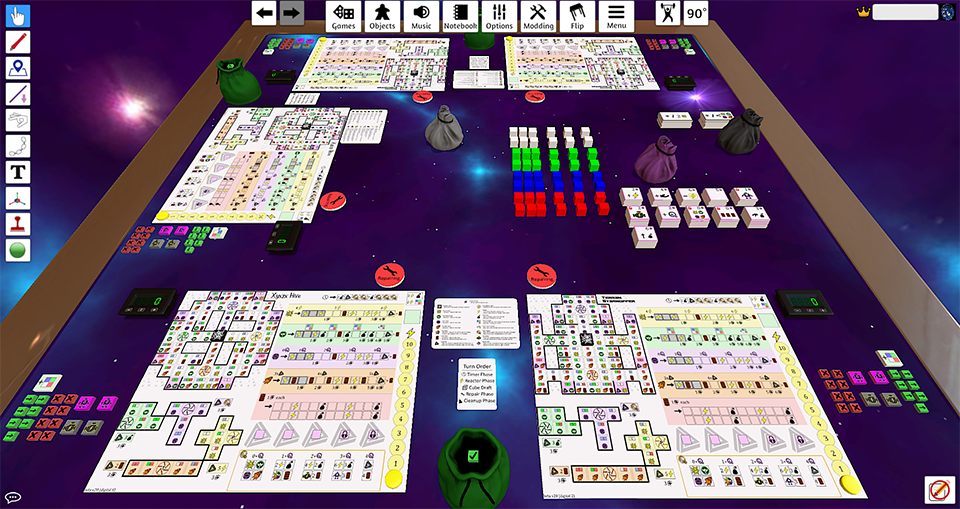
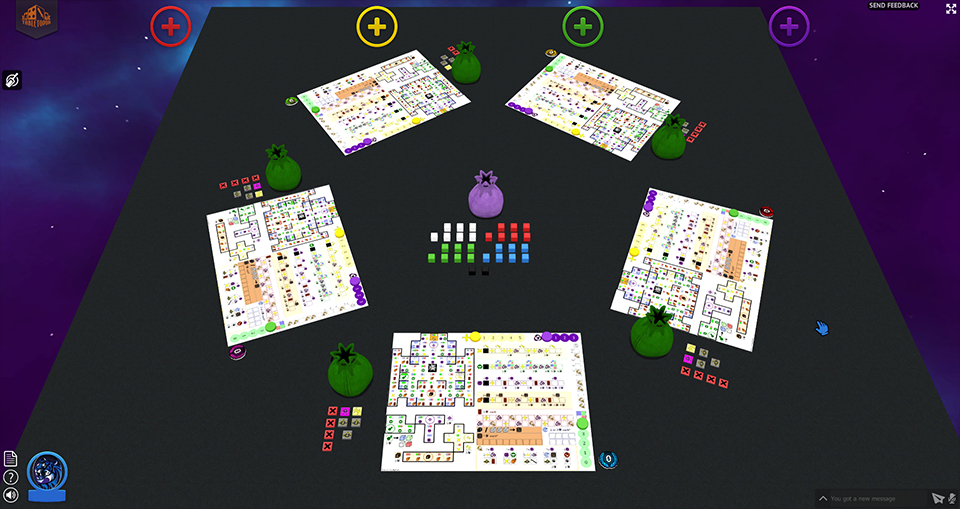




 RSS Feed
RSS Feed